You’ve come to the right place to learn about the evolution of disability care in Australia. In this article, we’ll take a closer look at the National Disability Insurance Scheme (NDIS) and its impact on the lives of individuals with disabilities and their families. From the challenges of the pre-NDIS era to the empowering effects of NDIS, we’ll explore how this paradigm shift in disability care is shaping the future of support services. So, let’s discover the transformative journey of disability care in Australia.
The Pre-NDIS Era: Challenges and Limitations
In the pre-NDIS era, you faced numerous challenges and limitations when it came to disability care in Australia. Access to necessary support services was often difficult, leaving you feeling frustrated and overwhelmed. The system was fragmented, with different providers offering inconsistent levels of care. You had to navigate complex bureaucratic processes, spending countless hours filling out paperwork and attending endless meetings. Financial strain was a constant burden, as the costs of disability care were high and often not covered by government assistance. The lack of choice and control over your own care was disheartening, as decisions were made without your input. Overall, the pre-NDIS era was characterized by a lack of empowerment and a sense of being at the mercy of a flawed system.
The Birth of NDIS: A Paradigm Shift in Disability Care
With the implementation of NDIS, a paradigm shift has occurred in disability care, providing individuals with greater access to support services and empowering them to have more control over their own care. The birth of NDIS marked a significant turning point in Australia’s approach to disability care, as it shifted the focus from a fragmented and limited system to a person-centered and flexible model. Under NDIS, individuals now have the ability to choose their own service providers, tailor their support plans to their specific needs, and have their voices heard in decision-making processes. This shift has brought about a sense of empowerment and autonomy for people with disabilities and their families, as they are now able to actively participate in shaping their own care and support services. As a result, NDIS has paved the way for a more inclusive and person-centered approach to disability care in Australia.
NDIS Rollout: Overcoming Implementation Challenges
To overcome the challenges of implementing NDIS, you must address the obstacles in the rollout process. One of the major challenges is the complexity of the system, which requires a significant amount of coordination and collaboration between various stakeholders. It is crucial to ensure that all parties involved have a clear understanding of their roles and responsibilities. Another challenge is the capacity of service providers to meet the increased demand for disability care. This requires adequate training and resources to be provided to support the workforce. Additionally, there is a need for effective communication and engagement with individuals with disabilities and their families to ensure that their needs are being met. By addressing these challenges head-on, the NDIS rollout can be successful in providing improved disability care for all Australians.
NDIS Impact: Empowering Participants and Their Families
Empower yourself and your family through the impactful effects of NDIS on participants. The National Disability Insurance Scheme (NDIS) has revolutionized disability care in Australia, providing individuals with greater control over their support services. With NDIS, you have the power to choose your service providers, tailor your support plan to your specific needs, and have a say in how your funds are allocated. This newfound empowerment allows you to actively participate in decisions regarding your care, ensuring that your individual goals and aspirations are at the forefront. NDIS also recognizes the importance of involving families in the planning process, fostering collaboration and shared decision-making. By embracing the opportunities presented by NDIS, you and your family can experience a new level of autonomy and agency, leading to improved outcomes and a higher quality of life.
Future of Disability Care: Building on NDIS Success
As a participant in the NDIS, you can expect continued advancements in disability care in Australia. The success of the NDIS has paved the way for a brighter future, where individuals with disabilities will have access to even better support and services. The NDIS has already transformed the disability care landscape by providing participants with more choice and control over their care plans. Moving forward, the focus will be on building on this success and further improving the quality of disability care. This will involve investing in research and innovation to develop new and effective interventions, enhancing the coordination of services, and ensuring that the NDIS remains sustainable in the long run. With these ongoing advancements, the future of disability care in Australia looks promising for NDIS participants.
Choose Core Assist
Choosing the right service provider is crucial to fully benefit from the NDIS. Core Assist is a highly recommended, trusted provider of NDIS services. As a team of qualified and passionate professionals, we are steadfast in our commitment to helping people with disabilities live more independently. Core Assist provides essential disability support services that are tailored to meet the unique needs and goals of each individual. Our devotion to empowering clients is evident in their person-centred approach to care, which places the individual at the heart of all decisions and plans.
Do you require support navigating your NDIS journey? Reach out to Core Assist. Our expertise, empathy, and exceptional services make us the preferred choice for those seeking to enhance their autonomous living through the NDIS. Together, we can continue to build on the success of the NDIS, promoting a future where every individual is enabled to lead a life of their choosing.





